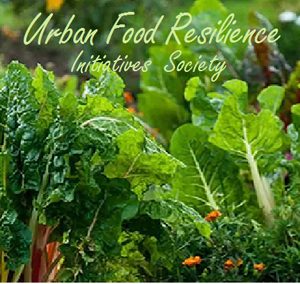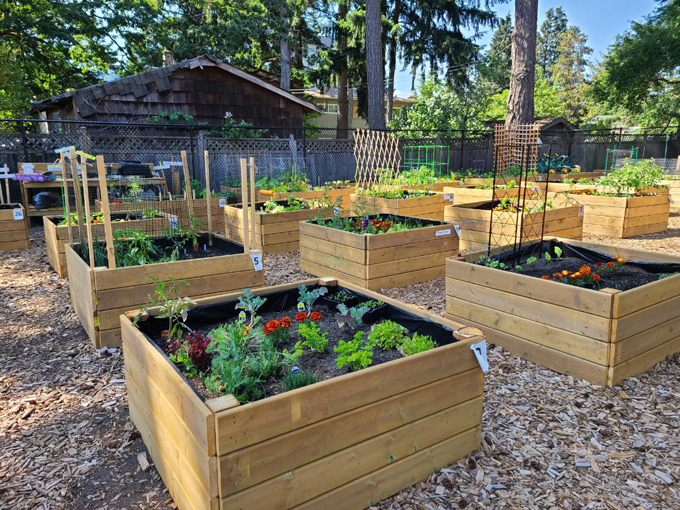November 5, 2025 | LANGFORD, BC
by Mary P Brooke, Executive Lead, Urban Food Resilience Initiatives Society
Growing food is something people, families and communities have done for thousands of years.
In today’s modern world we have become almost entirely reliant on food supplied by groceries stores, and sadly (though thankfully) also by food banks and similar sorts of community-driven food networks.
Capacity for communities to grow their own food is an essential buffer for when shopping at the grocery store costs too much or the food bank food quality is insufficient.
This became quite evident during the COVID pandemic in 2020 when (before vaccines) people could not even go out to retail stores. But they could go to their backyard or patio garden to top-up to their food supply.
As the cost of living challenge continues across all communities there is an obligation now for urban municipalities to ensure that all possible efforts are made to facilitate food-growing in urban spaces.
The food security role of municipalities includes supporting community gardens, food distribution networks that coordinate between food supply sources and residents-in-need, and encouraging (or requiring) developers to include food-growing capacity in all urban infrastructure.
Developers may express concern about adding ‘one more thing’ to the requirements in development permit applications. However, there is nothing more fundamental than the human right to grow food. If not providing land, a community garden space, patios and small spaces suitable for food-growing, or indoor green rooms, developers can contribute an amenity cost charge to cities in lieu of providing those physical options.
When the cost of housing goes up so high that people cannot afford properties which include land, people are being robbed of the ability to grow food and connect with nature in their own home space.
Urban Food Resilience Initiatives Society (UFRIS) maintains a core mission to maintain people’s right to grow food, and to facilitate ways to make that happen.
As municipal mayors and councils now face campaigns for election or re-election in October 2026, residents of towns and cities may wish to insist on urban food-growing capacity of these people who will lead communities across BC in 2026 and beyond.
====== About the writer:

Mary P Brooke is the Executive Lead of the Urban Food Resilience Initiatives Society (UFRIS), which was founded in January 2024.
Ms Brooke’s educational profile includes Foods and Nutrition (B.Sc.) as well as sociology, business and community education. She is well-connected in politics, business and community.
She promotes natural-source food as the best source of nutrition. She feels that growing food in one’s own home garden or in community spaces is a natural activity that requires protection in towns and cities.
In 2025, Ms Brooke led the UFRIS launch of the City of Langford’s first community garden at Porcher Park in the city’s downtown area.

